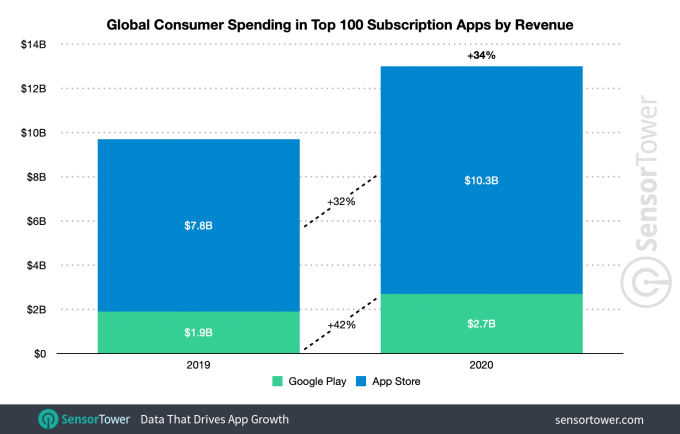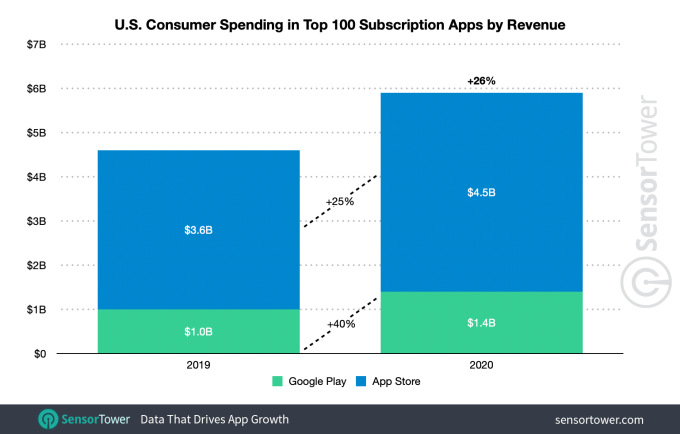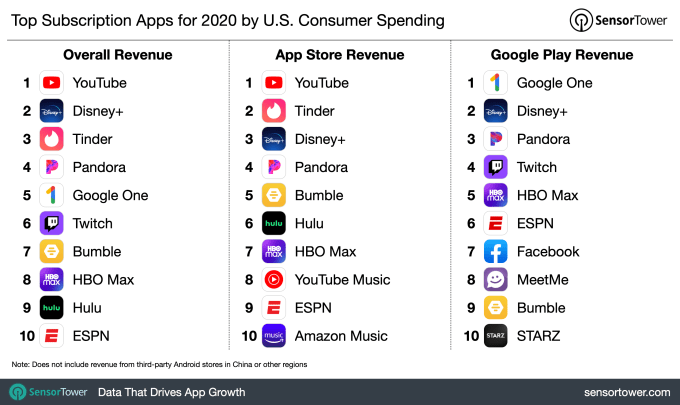Welcome back to This Week in Apps, the weekly TechCrunch series that recaps the latest in mobile OS news, mobile applications and the overall app economy.
The app industry is as hot as ever, with a record 218 billion downloads and $143 billion in global consumer spend in 2020.
Consumers last year also spent 3.5 trillion minutes using apps on Android devices alone. And in the U.S., app usage surged ahead of the time spent watching live TV. Currently, the average American watches 3.7 hours of live TV per day, but now spends four hours per day on their mobile devices.
Apps aren’t just a way to pass idle hours — they’re also a big business. In 2019, mobile-first companies had a combined $544 billion valuation, 6.5x higher than those without a mobile focus. In 2020, investors poured $73 billion in capital into mobile companies — a figure that’s up 27% year-over-year.
This week, we’re taking a look at the Bumble IPO, app store subscription revenue and talk to a developer on a crusade against the fake ratings plaguing the App Store. We’re also checking in on the missing Google privacy labels…with a spreadsheet of all 100 apps.
This Week in Apps will soon be a newsletter! Sign up here: techcrunch.com/newsletters.
Top Stories
Bumble IPO
Bumble, the dating app positioned as one of Tinder’s biggest rivals, began trading on public markets on Thursday. The company priced its shares at $43, above its earlier target range of $37 to $39. But once live, BMBL began trading up nearly 77% at $76 per share on Nasdaq, closing the day with a market cap of $7.7 billion and the stock at $70.55.
The app itself was founded in 2014 by early Tinder exec Whitney Wolfe Herd, who now, at 31, is the youngest woman founder to take a U.S. company public and, thanks to the IPO, the world’s youngest self-made woman billionaire, as well, said Fortune.
Wolfe Herd successfully leveraged her knowledge of the online dating market, then combined that with an understanding of how to position a dating app to make it more appealing to women.
On Bumble, women message first, for example, and the company often touts features and updates designed to protect women from bad actors. A lot of what Bumble does is just marketing and spin overlaid on the Tinder model. Like other dating apps, Bumble uses a similar format to connect potential matches: a swipeable “people catalog,” where users look at photos, primarily, to determine interest. Bumble, like others, also makes money by charging for extra features that give users a better shot or more efficient experience.
But all this works because users believe Bumble to be different. They believe Bumble is also capable of delivering higher-quality matches than Tinder, which has increasingly re-embraced its persona as a hook-up app.
The IPO’s success also sends a signal that investors are expecting in-person dating to rebound post-pandemic, and getting in early on the next big mass market dating app is an easy win.
Developer crusades against scammy subscription apps
Developer Kosta Eleftheriou, a Fleskly co-founder, has been on a crusade against the scammy and spammy apps overrunning the App Store, as well as Apple’s failure to do much about it.
Earlier this month, Kosta complained that copycat apps were undermining his current business, as the developer of an Apple Watch keyboard app, FlickType. Shady clones boosted by fake ratings and reviews promised the same features as his legit app, but then locked their customers into exorbitant subscriptions, earning the scammers hundreds of thousands per month.
In his eyes, the problem wasn’t just that clones existed, but that Apple’s lack of attention to fake reviews made those apps appear to be the better choice.
Although Apple finally removed most of his fraudulent competitors after his rants gained press attention, he’s frustrated that the system was so broken in the first place.
This week, Kosta returned with another Twitter thread detailing the multimillion-dollar scams that pretend to be the best Roku remote control app. One app, “Roku Remote Control – Roki,” for example, had a 4.5 stars across 15K+ ratings. The app was a free download, but immediately tries to lock users into a $4.99/week subscription or a lifetime payment of $19.99. However, the app offers a “buggy, ad-infested, poorly designed” experience, Kosta says.
He then used AppFigures to see only those reviews of the Roki app that also had text. When displayed like this, it was revealed that “Roki” was really just a 1.7-star app, based on consumers who took the time to write a review.
What’s worse, Kosta has also argued, that even when Apple reacts by removing a bad actor’s app, it will sometimes allow the developer to continue to run other, even more profitable scams.
Kosta says he decided to spearhead a campaign about App Store scams to “get the word out about how all these scams manage to sustain themselves through a singular common flaw in the App Store — one that has been broken for years.”
He also notes that although Apple responded to him, he believes the company is hoping for the story to blow over.
“The way Apple tried to communicate with me also didn’t help ease my concern — they either don’t get it, or are actively trying to let the story fizzle out through some token gestures. But what they need to do first and foremost, is acknowledge the issue and protect their customers,” Kosta told TechCrunch.
One potential argument here is that because Apple financially benefits from successful subscription app scams, it’s not motivated to prioritize work that focuses on cleaning up the App Store or fake ratings and reviews. But Kosta believes Apple isn’t being intentionally malicious in an effort to grow the subscription business, it’s just that fake App Store reviews have become “a can that’s been perpetually kicked down the road.” Plus, since Apple touts the App Store as a place users can trust, it’s hard for them to admit fault on this front, he says.
Since the crusade began, Kosta has heard from others developers who have sent him examples “dozens and dozens of scams.”
“I will just keep exposing them until Apple acknowledges the problem,” he says.
Top subscription apps grew 34% to $13B in 2020
Apps saw record downloads and consumer spending in 2020, globally reaching somewhere around $111 billion to $112 billion, according to various estimates. But a growing part of that spend was subscription payments, a report from Sensor Tower indicates. Last year, global subscription app revenue from the top 100 subscription apps (excluding games), climbed 34% year-over-year to $13 billion, up from $9.7 billion in 2019.
The App Store, not surprisingly, accounted for a sizable chunk of this subscription revenue, given it has historically outpaced the Play Store on consumer spending. In 2020, the top 100 subscription apps worldwide generated $10.3 billion on the App Store, up 32% over 2019, compared with $2.7 billion on Google Play, which grew 42% from $1.9 billion in 2019. (Read more here.)
Google-Apple Privacy Label war drags on
Google said it would update its iOS apps with privacy labels weeks ago. While it did roll out some, it has yet to update top apps with Apple’s new labels, including key apps like the Google search app, Google Pay, Google Assistant, Google One, Google Meet, Google Photos, Google Calendar, Google Maps, Google News, Google Drive, Gmail and others. (Keep track of this with me here. Want to help? Email me.)
Overall, the majority of Google’s apps don’t have labels. While Google probably needed some time (and a lot of lawyers) to look this over, it’s now super late to put its labels out there. At this point, its iOS apps are out of date — which Google accidentally alerted users to earlier this week. This is awful optics for a company users already don’t trust, and a win for Apple as a result. (Which, of course, means we need to know for sure that Apple isn’t delaying Google’s submissions here…)
Still, Google had time to get this done. Its December code freeze is long over, and everyone else, for the most part, has gotten on board with the new labels. Why can’t Google?
Weekly News
Platforms: Apple
Apple may soon allow users to set a different default music service. The company already opened up the ability to choose a different default browser and email app, but now a new feature in the iOS 14.5 beta indicates it may allow users to set another service, like Spotify, as the default option when asking Siri to play tunes. This, however, could be an integration with HomePod and Siri voice control support in mind, rather than something as universal as switching from Mail app to Gmail.
Apple Maps to gain Waze-like features for reporting accidents, hazards and speed traps. Another new feature in the iOS 14.5 beta will allow drivers to report road issues and incidents by using Siri on their iPhone or through Apple’s CarPlay. For example, during navigation, they’ll be able to tell Siri things like “there’s a crash up head,” “there’s something on the road,” or “there’s a speed trap here.”
Apple tests a new advertising slot on the App Store. Users of Apple’s new iOS 14.5 beta have reported seeing a new sponsored ad slot that appears on the Search tab of the App Store, under the “Suggested” heading (the screen that shows before you do a search). The ad slot is also labeled “Ad” and is a slightly color to differentiate it from the search results. It’s unclear at this time if Apple is planning to launch the ad slot or is just testing it.
The App Store announces price changes for Cameroon, Zimbabwe, Germany and the Republic of Korea.
Apple alerts developers to Push Notification service server certificate update, taking place on March 29, 2021.
Platforms: Google
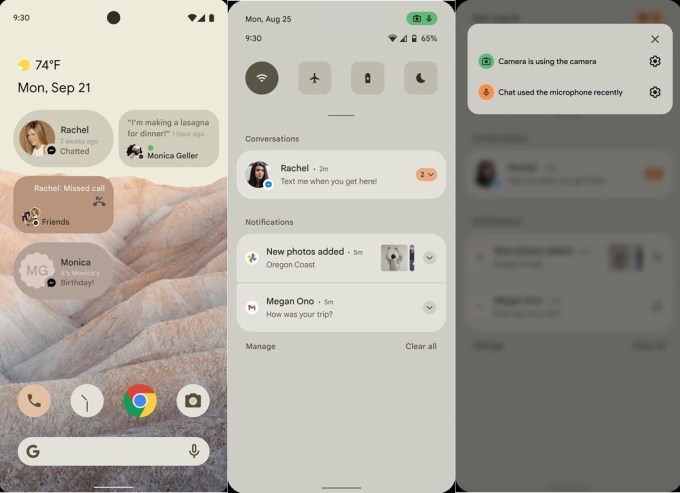
Image Credits: XDA Developers
Alleged Android 12 screenshots snagged from an early draft document by XDA Developers show Google could be borrowing some ideas from Apple’s iOS for its next update. One feature may put colored dots in the status bar to indicate when the camera or microphone are being accessing, for example. Users may also be able to toggle off their camera, microphone or location access entirely. Google may also add a “conversations” widget to show recent messages, calls and activity statuses, among other things.
Google bans data broker Predicio that was selling user data collected from a Muslim prayer app to Venntel, a government contractor that sells location data from smartphones to ICE, CBP and the FBI, following a Motherboard investigation. Google alerted developers they had a week to remove the SDK from their apps or they’d be removed from Google Play.
Google updated its instructor-led curriculum for Android Development with Kotlin, a major update for the course materials that were first released in 2018. The new materials are designed for either in-person or virtual learning, where educators combine lectures and codelabs.
Google briefly notified users that their Google iOS apps were “out of date” — an embarrassing mistake that was later corrected server-side. The bug arrived at a time when Google has yet to have updated its privacy labels for many of its largest apps, including Google, Gmail, Assistant, Maps, Photos and others.
Augmented Reality
Apple released a new iOS app, For All Mankind: Time Capsule, to promote its Apple TV+ series, “For All Mankind.” The app was built using Apple’s ARKit framework, offering a new narrative experience told in AR format featuring the show’s star. In the app, users join Danny as he examines keepsakes that connect to stories about impacting events in the lives of his parents, Gordo and Tracy Stevens, in the alternative world of the TV show.
E-commerce
 TikTok is expanding its e-commerce efforts. The company told marketers it’s planning a push into livestreamed e-commerce, and will also allow creators to share affiliate links to products, giving them a way to earn commissions from their videos. The company also recently announced a partnership with global ad agency WPP that will give WPP agencies and clients early access to TikTok ad products. It will also connect top creators with WPP for brand deals.
TikTok is expanding its e-commerce efforts. The company told marketers it’s planning a push into livestreamed e-commerce, and will also allow creators to share affiliate links to products, giving them a way to earn commissions from their videos. The company also recently announced a partnership with global ad agency WPP that will give WPP agencies and clients early access to TikTok ad products. It will also connect top creators with WPP for brand deals.
The Single Day Shopping festival drove high mobile usage. Consumers spent 2.3 billion hours in Android shopping apps during week of November 8-15, 2020, reports App Annie.
Social
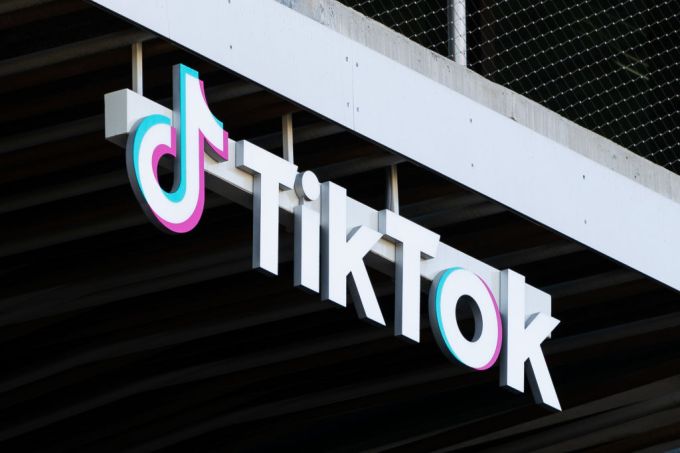
Image Credits: AaronP/Bauer-Griffin/GC Images
 TikTok’s sale of its U.S. operations to Oracle and Walmart is shelved. The Biden administration undertook a review of Trump’s efforts to address security risks from Chinese tech firms, including the forced sale of TikTok’s U.S. operations. The Trump administration claimed TikTok was a national security threat, and ordered TikTok owner ByteDance to divest its U.S. operations if it wanted to continue to operate in the country. Several large tech companies stepped up to the plate to take on the potential windfall. But Biden’s review of the agency action puts Trump’s plan on an indefinite pause. As a result, the U.S. government will delay its appeal of of federal district court judge’s December 2020 injunction against the TikTok ban. Discussions between U.S. national security officials and ByteDance are continuing, however.
TikTok’s sale of its U.S. operations to Oracle and Walmart is shelved. The Biden administration undertook a review of Trump’s efforts to address security risks from Chinese tech firms, including the forced sale of TikTok’s U.S. operations. The Trump administration claimed TikTok was a national security threat, and ordered TikTok owner ByteDance to divest its U.S. operations if it wanted to continue to operate in the country. Several large tech companies stepped up to the plate to take on the potential windfall. But Biden’s review of the agency action puts Trump’s plan on an indefinite pause. As a result, the U.S. government will delay its appeal of of federal district court judge’s December 2020 injunction against the TikTok ban. Discussions between U.S. national security officials and ByteDance are continuing, however.
 Facebook is said to be building its own Clubhouse rival. Mark Zuckerberg made a brief appearance on Clubhouse earlier this month, which now seems more like a reconnaissance mission, if The NYT’s report is true. Facebook will have to tread lightly, given its still under regulatory scrutiny for anticompetitive practices, which included cloning and acquiring its competition.
Facebook is said to be building its own Clubhouse rival. Mark Zuckerberg made a brief appearance on Clubhouse earlier this month, which now seems more like a reconnaissance mission, if The NYT’s report is true. Facebook will have to tread lightly, given its still under regulatory scrutiny for anticompetitive practices, which included cloning and acquiring its competition.
 Microsoft reportedly approached Pinterest about an acquisition of the $51 billion social media platform, but those talks are no longer active.
Microsoft reportedly approached Pinterest about an acquisition of the $51 billion social media platform, but those talks are no longer active.
TikTok partnered with recipe app Whisk to add a way for users to save recipes featured in TikTok videos. The feature is currently in pilot testing with select creators.
Mark Cuban is co-founding a new podcast app, Fireside. The Shark Tank star and investor has teamed up with Falon Fatemi, who sold customer intelligence startup Node to SugarCRM last year. Fireside is basically Clubhouse, but adds the ability to export live conversations as podcasts.
TikTok expands its Universal Music Group deal just days after UMG pulled its song catalog from Triller, saying the app was withholding artist payments.
Indian firm ShareChat will integrate Snapchat’s Camera Kit technology into its Moj app to enable AR features. The move will give Snap a foothold in a key emerging market.
Instagram said it will impose stricter penalties against those who send abusive messages, including account bans, and develop new controls to reduce the abuse people see in their DMs. The announcement followed a recent bout of racist abuse targeted at footballers in the U.K. A joint statement from Everton, Liverpool, Manchester United and Manchester City condemned the abuse, saying “there is no room for racism, hate or any form of discrimination in our beautiful game.”
Instagram tells creators that it won’t promote their recycled TikToks. The company announced via its @creators account a set of best practices for Reels, noting that those featuring a watermark or logo (which TikTok smartly attaches to its content), won’t be recommended frequently on Instagram’s platform. Of course, TikTok creators are already circulating videos with tips about how to cut out the logo from TikTok videos by first exporting the video as a Live Photo, then going to their iOS Photos app, clicking on the Live Photo and choosing “Save as Video.” Problem solved.
Photos

Image Credits: Google
Google Photos for Android adds previously Pixel-only features — but only if users subscribe to Google One. The paywalled features include machine learning-powered editing tools like Portrait Blur, Portrait Light and Color Pop. There’s also a new video editor on iOS with an Android update planned. The editor now lets you crop, change perspective, add filters, apply granular edits (including brightness, contrast, saturation and warmth) and more.
Adobe adds collaboration and asynchronous editing to Photoshop, Illustrator and Fresco. The update will be supported across platforms, including desktop, iPad and iPhone.
Streaming and Entertainment
Waze adds Audible to its list of in-app audio players. The integration allows you to easily play your audiobooks while driving. Waze already supported in-app music integrations, like YouTube Music and Spotify, thanks to developer integrations with the Waze Audio Kit.
HBO Max is going international. The app will be expanded to 39 Latin American and Caribbean territories in June, replacing the existing HBO GO app.
Picture-in-picture mode returned to YouTube on iOS with the launch of the iOS 14.5 beta.
Messaging
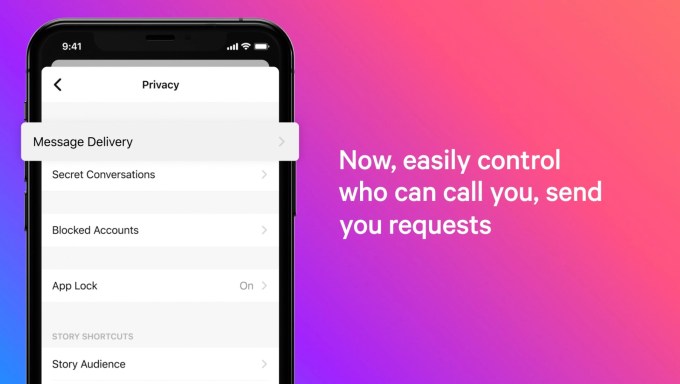
Facebook Messenger added a new feature that makes it easier to block and mass-delete Message Requests from people you don’t know. It also said it’s working on new ways to report abuse and providing better feedback on the status of those reports.
The Biden administration pauses the Trump ban on WeChat. The administration asked a federal appeals court to place a hold on proceedings over the WeChat a day after it asked for a similar delay over the TikTok case, saying it needed time to review the previous administration’s efforts, which are now in the appeals stage.
Health & Fitness
NHS Covid-tracing app has prevented 600,000 infections in England and Wales, researchers estimated in one of the first studies of smartphone-based tracing. The app used the tracing system built by Apple and Google.
Fintech
The Robinhood backlash hasn’t stopped the downloads. Many users downrated the app after it halted meme stock trading earlier this month — a move that’s now under Congressional investigation and has prompted multiple lawsuits. But the app continues to receive downloads. The day after it halted trades was its second-largest by downloads ever, and downloads remained high in the days that followed. In January 2021, the app was installed 3.7 million times in the U.S., or 4x the installs of January 2020.
Government & Policy
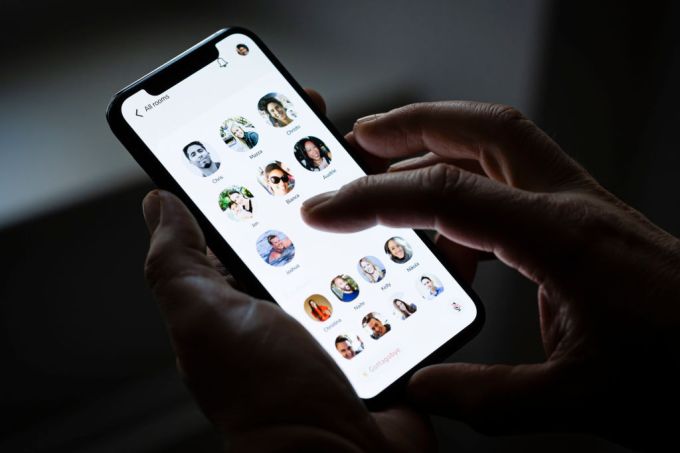
Image credits: Thomas Trutschel/Photothek via Getty Images
The Chinese government blocked Clubhouse, which had been rapidly gaining attention in the country. The app itself had only briefly been made available in Apple’s China App Store last fall, but those had it installed could access its audio chat rooms without a VPN. Prior to the ban, a group discussing the 1989 pro-democracy Tiananmen protest reached 5,000 participants — the max number of participants Clubhouse supports.
A new North Dakota Senate bill proposes to ban app stores like Apple and Google from requiring developers to exclusively use their store and payment mechanisms to distribute apps, and would prevent them from retaliating, at the risk of fines. Apple’s Chief Privacy Engineer Erik Neuenschwander said the bill “threatens to destroy the iPhone as you know it,” and that Apple succeeds because it “works hard to keep the bad apps out of the App Store.”
The Coalition for App Fairness (CAF) announced that Meghan DiMuzio has now joined as its first executive director. The advocacy group fighting against app store anticompetitive behavior is made up of over 50 members, including Spotify, Tile, Basecamp, Epic Games and others.
Security & Privacy
The U.S. House of Representatives Committee on Energy and Commerce has asked Apple to improve the credibility of App Store privacy labels, so consumers aren’t harmed. The request was made after an investigation by The Washington Post revealed that many labels were false, leading to questions as to whether the labels could be trusted at all.
Apple will begin to proxy Google’s “Safe Browsing” service used by Safari through its own servers starting with iOS 14.5. Safari on iPhone and iPad includes a “Fraudulent Website Warning” feature that warns users if they’re visiting a possible phishing site. The feature leverages Google’s “Safe Browsing” database and blocklist. Before, Google may have collected user’s IP address during its interaction with Safari, when the browser would check the website URL against Google’s list. Now, Apple will proxy the feature through Apple’s own servers to limit the risk of information leaks. The change was reported by The 8-bit, MacRumors and others, after a Reddit sighting, and confirmed by Apple’s head of Engineering for WebKit.
A generically named app “Barcode Scanner” on the Google Play Store had been operating as a legit app for years before turning into malware. Users of the app, which had over 10 million installs, began to experience ads that would open their browser out of nowhere. The malware was traced to the app and Google removed it from the Play Store. Unfortunately, users review-bombed a different, innocent app as a result, leaving it 1-star reviews and accusing it of being malware.
Google Chrome’s iOS app is testing a feature that would lock your Incognito tabs with either Touch ID or Face ID to add more security to the browser app.
Google Fi VPN for Android exits beta and expands to iPhone. The VPN app, designed for Google Fi users, is meant to encrypt connections when on public Wi-Fi networks or when using sites that don’t encrypt data. Users, however, question the privacy offered by VPN from Google.
Twitter said the iOS 14 privacy update will have a “modest impact” on its revenue. The companies joins others, including Facebook and Snap, in saying that Apple is impacting their business’s monetization.
Funding and M&A
 Quilt, a “Clubhouse” focused self-care, raised $3.5 million seed round led by Mayfield Fund. The app has a similar format to audio social network, Clubhouse, but rooms are dedicated less to hustle culture and more to wellness, personal development, spirituality, meditation, astrology and more.
Quilt, a “Clubhouse” focused self-care, raised $3.5 million seed round led by Mayfield Fund. The app has a similar format to audio social network, Clubhouse, but rooms are dedicated less to hustle culture and more to wellness, personal development, spirituality, meditation, astrology and more.
 Match Group, owner of dating apps like Match and Tinder, will buy Korean social media company Hyperconnect for $1.73 billion. The company runs two apps, Azar and Hakuna Live, both which focus on video, including video chats and live broadcasts.
Match Group, owner of dating apps like Match and Tinder, will buy Korean social media company Hyperconnect for $1.73 billion. The company runs two apps, Azar and Hakuna Live, both which focus on video, including video chats and live broadcasts.
 Electronic Arts buys Glu Mobile, maker of the “Kim Kardashian: Hollywood” mobile game in a $2.4 billion deal. The all-cash deal will also bring other games, like “Diner Dash” and “MLB Tap Sports Baseball” to EA, which said it made the acquisition because mobile is the “fastest-growing platform on the planet.”
Electronic Arts buys Glu Mobile, maker of the “Kim Kardashian: Hollywood” mobile game in a $2.4 billion deal. The all-cash deal will also bring other games, like “Diner Dash” and “MLB Tap Sports Baseball” to EA, which said it made the acquisition because mobile is the “fastest-growing platform on the planet.”
 French startup Powder raised $12 million for its social app for sharing clips from your favorite games, and follow others with the same interests. The app can capture video content from both desktop and mobile games.
French startup Powder raised $12 million for its social app for sharing clips from your favorite games, and follow others with the same interests. The app can capture video content from both desktop and mobile games.
 Reddit’s valuation doubled to $6 billion after raising $250 million in a late-stage funding round led by Vy Capital, following the r/WallStreetBets and GameStop frenzy. The company was previously valued at $3 billion, and is also backed by Andreessen Horowitz and Tencent Holdings Ltd.
Reddit’s valuation doubled to $6 billion after raising $250 million in a late-stage funding round led by Vy Capital, following the r/WallStreetBets and GameStop frenzy. The company was previously valued at $3 billion, and is also backed by Andreessen Horowitz and Tencent Holdings Ltd.
 SplashLearn raised $18 million for its game-based edtech platform. The startup offers math and reading courses for Pre-K through 5th grade, and over 4,000 games and interactive activities.
SplashLearn raised $18 million for its game-based edtech platform. The startup offers math and reading courses for Pre-K through 5th grade, and over 4,000 games and interactive activities.
 Goody raised $4 million for its mobile app that lets you send gifts to friends, family and other loved ones over a text message. The other user can then personalize the gift and share their address, if you don’t have that information.
Goody raised $4 million for its mobile app that lets you send gifts to friends, family and other loved ones over a text message. The other user can then personalize the gift and share their address, if you don’t have that information.
 VerSe Innovation, the Bangalore-based parent firm of news and entertainment app Dailyhunt and short video app Josh, a TikTok rival, raised over $100 million in Series H round led by Qatar Investment Authority and Glade Brook Capital Partners. The round turns the company into a unicorn.
VerSe Innovation, the Bangalore-based parent firm of news and entertainment app Dailyhunt and short video app Josh, a TikTok rival, raised over $100 million in Series H round led by Qatar Investment Authority and Glade Brook Capital Partners. The round turns the company into a unicorn.
 Tickr, an app that lets U.K. consumers make financial investments based on their impact to society and the environment, raised $3.4 million in a round led by Ada Ventures, a VC firm focused on impact startups.
Tickr, an app that lets U.K. consumers make financial investments based on their impact to society and the environment, raised $3.4 million in a round led by Ada Ventures, a VC firm focused on impact startups.
 Huuuge Inc., a developer of free-to-play mobile casino games, raised $445 million in its IPO in Warsaw, becoming Poland’s largest-ever gaming industry listing.
Huuuge Inc., a developer of free-to-play mobile casino games, raised $445 million in its IPO in Warsaw, becoming Poland’s largest-ever gaming industry listing.
 Uptime, an educational app that offers 5-minute bits of insight from top books and courses, raised a $16 million “seed” round led by Tesco CEO Sir Terry Leahy; entrepreneur and chairman of N Brown, David Alliance; and members of private equity firm Thomas H Lee.
Uptime, an educational app that offers 5-minute bits of insight from top books and courses, raised a $16 million “seed” round led by Tesco CEO Sir Terry Leahy; entrepreneur and chairman of N Brown, David Alliance; and members of private equity firm Thomas H Lee.
 Modern Health, a mental health services provider for businesses to offer to their employees, raised $74 million, valuing its business at $1.17 billion. The Modern Health mobile app assesses each employee’s need and then provide care options.
Modern Health, a mental health services provider for businesses to offer to their employees, raised $74 million, valuing its business at $1.17 billion. The Modern Health mobile app assesses each employee’s need and then provide care options.
 Scalarr raised $7.5 million to fight mobile ad fraud. The company offers products to detect ad fraud before an advertiser bids and other tools used by ad exchanges, demand-side platforms, and supply-side platforms.
Scalarr raised $7.5 million to fight mobile ad fraud. The company offers products to detect ad fraud before an advertiser bids and other tools used by ad exchanges, demand-side platforms, and supply-side platforms.
 Dublin-based food ordering app Flipdish, a Deliveroo rival, raised €40 million from global investment firm Tiger Global Management. The app offers a lower commission than other delivery rivals and is even testing drone delivery with startup Manna Aero.
Dublin-based food ordering app Flipdish, a Deliveroo rival, raised €40 million from global investment firm Tiger Global Management. The app offers a lower commission than other delivery rivals and is even testing drone delivery with startup Manna Aero.
 Jackpot, an NYC-based lottery ticket app, raised $50 million Series C. The app allows users to play the lottery games in nine different states, including Arkansas, Colorado, Minnesota, New Hampshire, New Jersey, New York, Ohio, Oregon, Texas and Washington, D.C.
Jackpot, an NYC-based lottery ticket app, raised $50 million Series C. The app allows users to play the lottery games in nine different states, including Arkansas, Colorado, Minnesota, New Hampshire, New Jersey, New York, Ohio, Oregon, Texas and Washington, D.C.
Downloads
Insight’s iOS web browser supports “extensions”
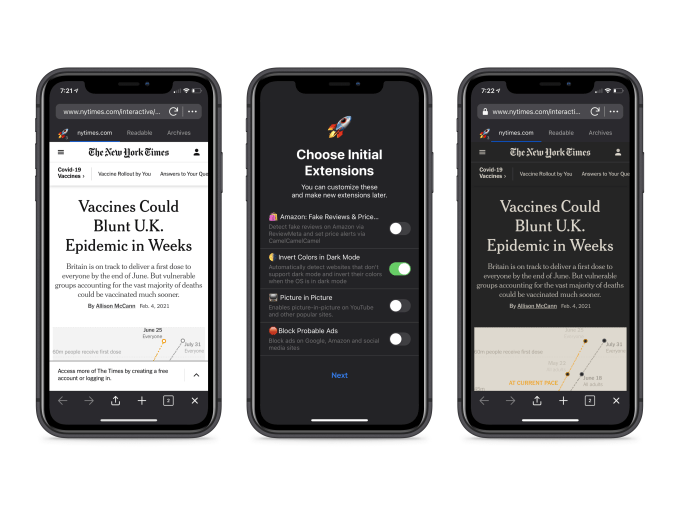
Image Credits: Insight
A new startup called Insight is bringing web browser extensions to the iPhone, with the goal of delivering a better web browsing experience by blocking ads and trackers, flagging fake reviews on Amazon, offering SEO-free search experiences or even calling out media bias and misinformation, among other things. These features are made available by way of the browser’s “extensions,” which work by way of a “sub-tab” workflow where you navigate using swiping gestures. For example, when online shopping, you could view the product you’re interested in, then swipe over to see the available coupons, the trusted product reviews or to comparison shop across other sites.
The app is a free download on iOS.
App Annie Pulse
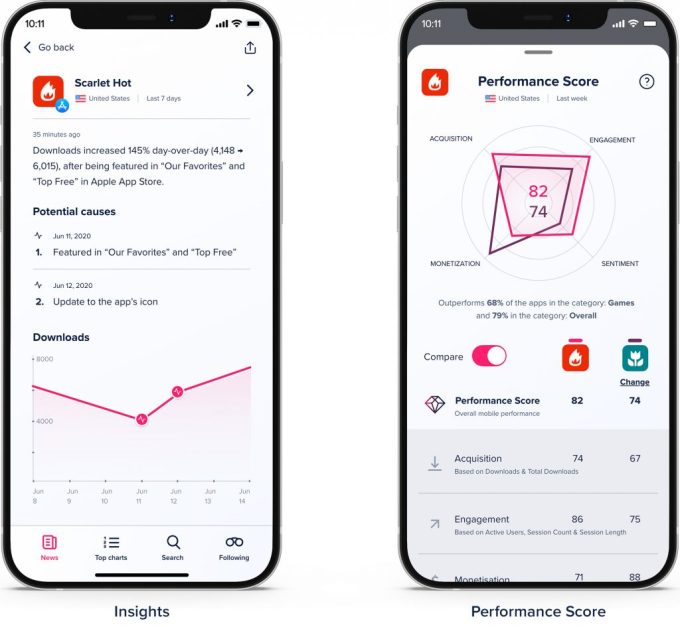
Image Credits: App Annie
App Annie’s new app Pulse is aimed not at the more advanced analyst or marketer immersed in data, but rather at the executive who wants a “more elevated, top-down view” of the app ecosystem, TechCrunch reported. The app offers easy access to the app stores’ top charts, plus tools for tracking apps, and a news feed highlighting recent trends. Another feature, the App Annie Performance score, which aims to distill user acquisition, engagement, monetization and sentiment into a single benchmark.
The app is currently iOS-only.
from Apple – TechCrunch https://ift.tt/3d9DmT2
 From Austin, TX, Bumble CEO & Founder
From Austin, TX, Bumble CEO & Founder 



